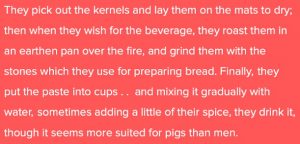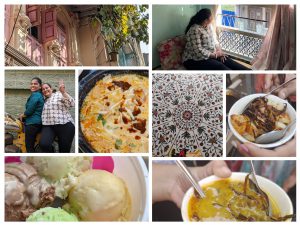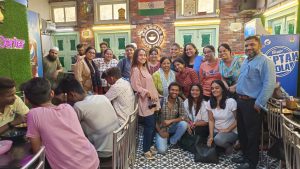Chocolate – before and after!
The first ever reaction that comes to anyone on listening to chocolate is pleasure and comfort. It makes the world go round. It is the ultimate happiness that anyone can savour. We would all agree that everything is good if it is made of chocolate. Most of us would relate chocolate as a way to deal with feelings instead of to satisfy hunger.
We were all super-excited when we learnt that we were going to learn about chocolate. And this is the first thing that we got to read.
Imagine our disbelief when we learnt that our delicious chocolate has been termed as something that is suited for the consumption of pigs! And then we learnt that what we read was one of the first detailed accounts of the original chocolate that comes from the History of the New World (1564) by the Milanese Girolamo Benzoni, who travelled in Central America.
So the story goes like this. In the early days, before the 16th century, chocolate wasn’t this creamy, rich, sweet, sensuous, soft, decadent and super addictive food that we know of. It was extremely bitter, gruelly, coarse, crumbly and too heavy to eat. More than a treat, it was a treatment, used as a medicine or fed to soldiers as an instant energizer to prepare them for war.
It is only through the human desire to improvise, innovate and derive pleasure that we got the chocolate that we know. It is a great example of human ingenuity in action.
So if you were born before the 16th century, your experience with chocolate would have been very different. So different that if you time travelled and reached this day in Switzerland and tasted chocolate, chances are you wouldn’t be able to make any association of one with the other.
And this is the short video about the history and evolution of chocolate that we watched,
https://www.youtube.com/watch?v=ibjUpk9Iagk
Chocolate has been known and loved for many centuries, not only as food but also as medicine. The process of how chocolate is created right from the cocoa beans that grow inside the pods of the cacao trees that are native to central South America to the bars that we relish was worth learning.
So the next time you find yourself craving some chocolate, don’t dismiss it as simply craving for a sweet treat. It could be an important signal that your heart is in need of love. Give in to the desire and buy yourself a big bar.




 The one who set new rules and values
The one who set new rules and values